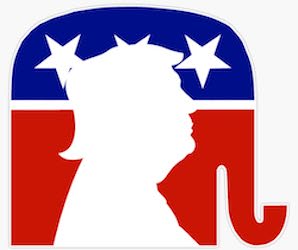
Republican Party. Also known as the GOP (Grand Old Party), is one of the two major contemporary political parties in the U.S. It emerged as the main political rival of the then-dominant Democratic Party in the mid-1850s, and the two parties have dominated American politics ever since.
Today, there is a correlation between Republican or “Red States” and states that belonged to the Confederacy during the U.S. Civil War (Texas, Arkansas, Louisiana, Tennessee, Mississippi, Alabama, Georgia, Florida, South Carolina, North Carolina and Virginia).
The party was founded in 1854 by anti-slavery activists who opposed the Kansas–Nebraska Act, an act which allowed for the potential expansion of chattel slavery into the western territories of Kansas and Nebraska. It supported classical liberalism and economic reform while opposing the expansion of slavery into the free territories. The party initially had a very limited presence in the South, but was successful in the North.
With the 1860 election of Abraham Lincoln, the first Republican president, the deep Southern states seceded from the United States. Under the leadership of Lincoln and a Republican Congress, the Republican Party led the fight to defeat the Confederate States in the American Civil War, preserving the Union and abolishing slavery.
During the Great Depression in the 1930s, the party lost its congressional majorities and the Democrats’ New Deal programs proved popular. Dwight D. Eisenhower‘s election was a rare break in between Democratic presidents and he presided over a period of increased economic prosperity after World War II. His former vice president Richard Nixon carried 49 states in 1972 with what he touted as his silent majority.
The 1980 election of Ronald Reagan realigned national politics, bringing together advocates of free-market economics, social conservatives, and Cold War foreign policy hawks under the Republican banner. Since 2008, the Republican Party has faced significant factionalism within the party’s ranks.
In the 21st century, the party receives its strongest support from rural voters, evangelical Christians, men, senior citizens, and white voters without college degrees. On economic issues, the party has maintained a pro-business attitude since its inception. It opposes socialism, labor unions and single-payer healthcare.
The populist faction supports economic protectionism. On social issues, it advocates for restricting the legality of abortion, discouraging and often prohibiting recreational drug use, promoting gun ownership and easing gun restrictions, and opposing the transgender rights movement. In foreign policy, the populist faction is isolationist and supports non-interventionism.